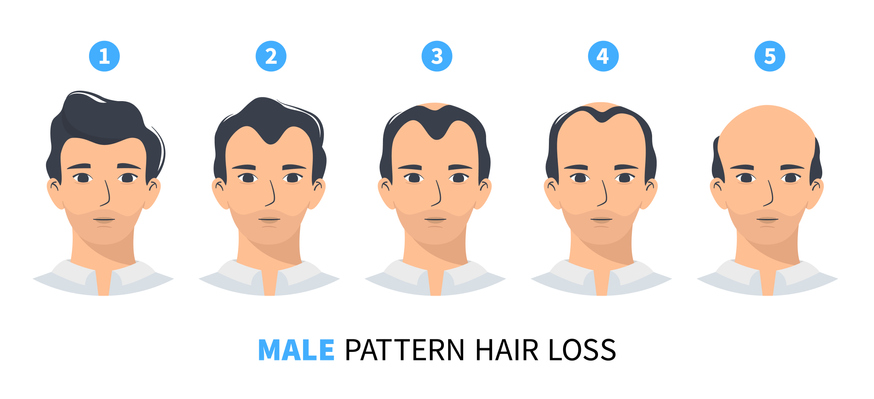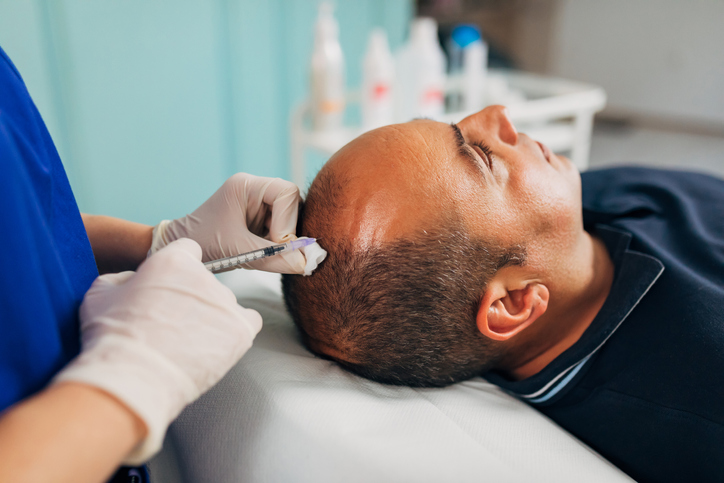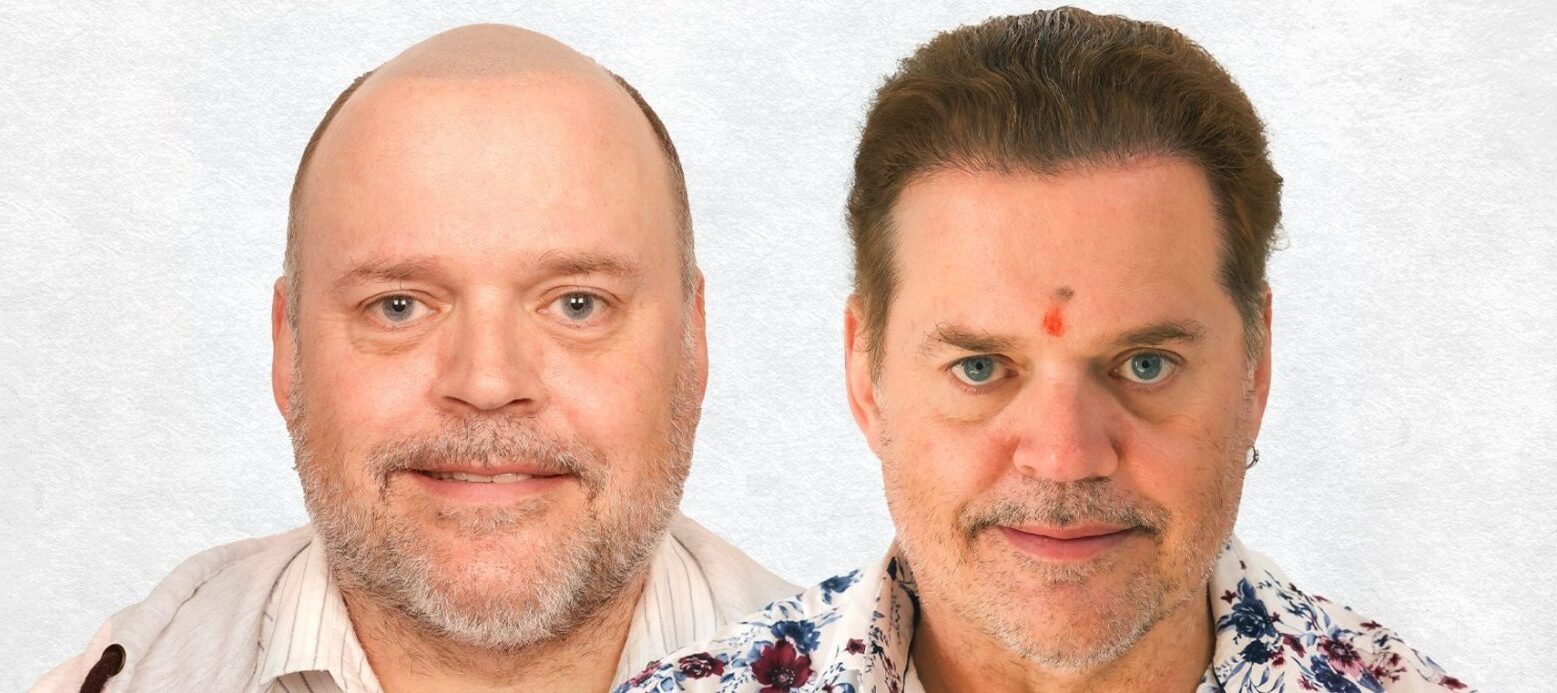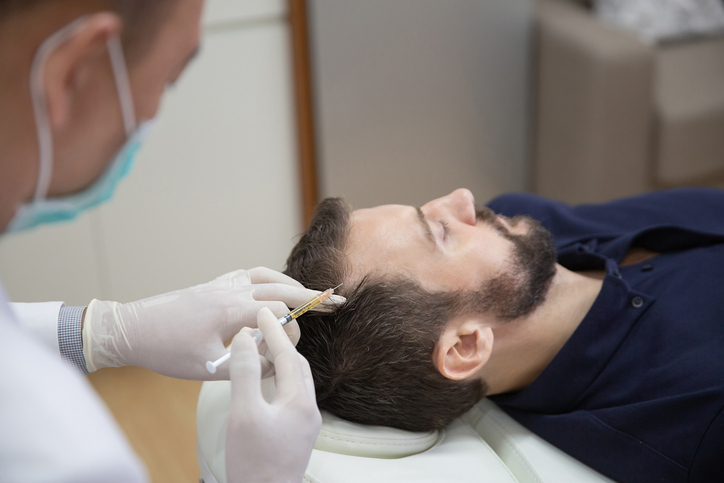Androgenetic alopecia, commonly known as male or female pattern baldness, is a pervasive condition affecting millions worldwide. This form of hair loss can significantly impact one’s self-esteem and quality of life. If you have experienced or know someone experiencing hair loss, it is important to delve into the intricacies of androgenetic alopecia, explore its causes, effects, and available treatments, and shed light on the emotional journey of those affected by this condition.
The Science
Androgenetic alopecia is a genetic condition influenced by hormonal factors. In individuals predisposed to this type of hair loss, hair follicles become sensitive to dihydrotestosterone (DHT), a hormone derived from testosterone. The presence of DHT causes miniaturization of hair follicles over time, resulting in progressively thinner and shorter hair strands. Eventually, the affected follicles stop producing visible hair, leading to areas of baldness or hair thinning.
The Emotional Impact
Hair loss can have profound psychological effects on individuals experiencing androgenetic alopecia. It can erode self-confidence, trigger feelings of self-consciousness, and contribute to social anxiety. The emotional toll of hair loss goes beyond mere aesthetics, highlighting the need for compassionate support, understanding, and effective treatment options to address the underlying causes and alleviate the emotional distress associated with this condition.
Available Treatment Options
While androgenetic alopecia may not have a definitive cure, there are several treatment options available to manage its progression and minimize its impact. These include:
- Medications: FDA-approved medications, such as minoxidil and finasteride, can help slow down hair loss and promote hair regrowth in some individuals.
- Low-Level Laser Therapy (LLLT): LLLT devices, such as laser combs or helmets, deliver targeted light energy to the scalp, stimulating hair follicles and potentially promoting hair growth.
- Hair Transplantation: Surgical procedures like hair transplantation offer a long-term solution by redistributing healthy hair follicles from donor areas to the balding or thinning areas of the scalp.
- Scalp Micropigmentation (SMP): SMP involves tattooing tiny pigments onto the scalp to create the appearance of a closely-shaven head or denser hair, providing a non-surgical cosmetic option for camouflaging thinning areas.
- Camouflage Techniques: Various cosmetic products, such as concealers, powders, and fibers, can be used to temporarily disguise hair loss by creating the illusion of thicker hair.
The Importance of Remaining Aware
Raising awareness and providing support for individuals with androgenetic alopecia is essential. Educational resources, support groups, and online communities can offer valuable information, empathy, and guidance throughout the hair loss journey. By fostering an environment of understanding and acceptance, we can help those affected by androgenetic alopecia embrace their unique beauty and confidently navigate the available treatment options.
Promising Advances in Research
Research in the field of hair restoration continues to make significant strides, offering hope for future breakthroughs in treating androgenetic alopecia. Scientists are exploring innovative approaches, including stem cell therapy, gene therapy, and novel drug formulations, with the aim of identifying more effective and targeted treatments to halt or reverse hair loss.
Embracing Diversity and Redefining Beauty
Challenging societal norms and redefining beauty standards by embracing diversity and celebrating individuality is crucial. Androgenetic alopecia does not define a person’s worth or attractiveness. By promoting inclusivity and advocating for self-acceptance, we can empower individuals with androgenetic alopecia to embrace their unique journey, regardless of their hair loss condition.
Androgenetic alopecia remains a prevalent and impactful condition affecting both men and women. We can create a more compassionate and informed society by understanding its underlying causes, exploring available treatments, and fostering support and understanding. Let us join hands in dismantling the stigma surrounding hair loss and empowering individuals to embrace their true selves, embracing their unique beauty beyond external appearances.





